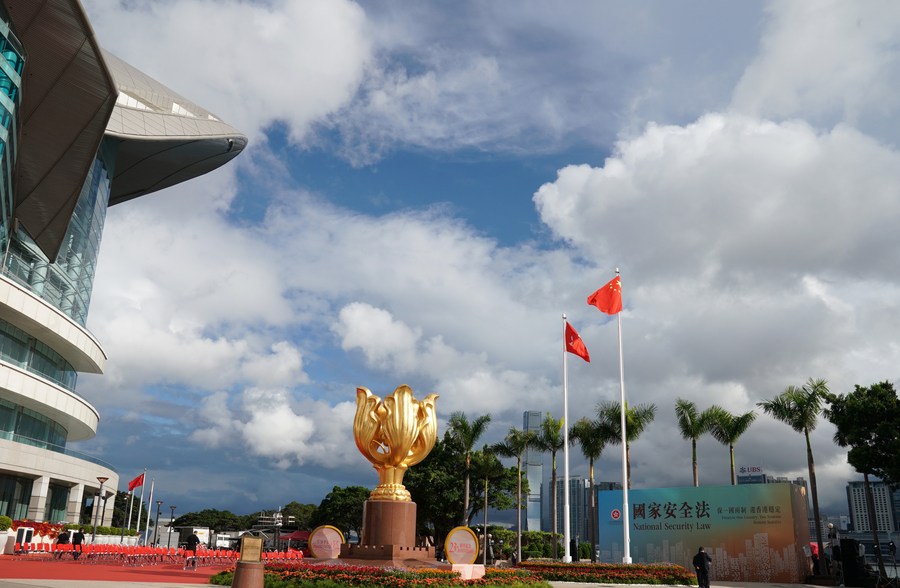HK council must carry out duties


The Standing Committee of the National People's Congress earlier this month passed a decision that has prevented a legislative gap in the Hong Kong Special Administrative Region by letting the Sixth Legislative Council of the HKSAR continue to discharge its duty for no less than a year till the Seventh Legislative Council is elected in September next year.
Without this decision, a legislative gap would have occurred on the expiration of the sixth council's term at the end of September this year.
The NPCSC decision says the term of the seventh council will be four years, as stipulated in the Basic Law of the HKSAR, despite being delayed for at least a year.
Public attention is now on how the council will continue to carry out its duties.
The NPCSC decision says the sixth council will "continue to discharge its duty" instead of "continue to function". The difference between "duty" and "function" is that the council's duty is clearly spelled out in the Basic Law and relevant Hong Kong law, while the word "function" merely indicates the legislature is not in recess.
In this context, "duty" means the council must fulfill its responsibility according to the Basic Law and Hong Kong law.
What is the council's duty, one may ask. Article 73 of the Basic Law of the HKSAR stipulates that the council, among other responsibilities, is "to enact, amend or repeal laws in accordance with the provisions of this Law and legal procedures; to examine and approve budgets introduced by the government; to approve taxation and public expenditure; to receive and debate the policy addresses of the Chief Executive; to raise questions on the work of the government; to debate any issue concerning public interests; to endorse the appointment and removal of the judges of the Court of Final Appeal and the Chief Judge of the High Court; and to receive and handle complaints from Hong Kong residents."
To discharge its duty effectively, the council must work efficiently in exercising the powers and functions spelled out in Article 73 of the Basic Law, which do not include politically motivated acts such as filibustering government legislation and introducing bills aimed at obstructing the HKSAR government's normal operations.
Opposition lawmakers have caused tremendous damage to the overall interest of Hong Kong society through numerous politically motivated acts aimed at undermining the executive-led HKSAR government in the past 23 years.
Such deeds have been strongly condemned, and many local residents have demanded legal action against certain opposition politicians.
A dispute within the opposition camp has been going on over a proposed "resignation en masse" by some opposition members of the sixth council to demonstrate their defiance toward the NPCSC decision, which requires them to continue discharging their duties for no less than a year.
Some "pan-democratic" parties are apparently opposed to such a move because the council membership comes with guaranteed political and financial resources, not to mention certain "privileges" unavailable elsewhere.
Those interest-driven opposition lawmakers have come up with a counter offer called "fighting for every inch of ground" by continuing to obstruct the normal operations of the SAR government inside the establishment.
This is just an excuse to pursue vested interests, with no guarantee for holding "moral high ground". They know, as well as members of the public do, that they will very likely lose popular support in the Seventh Legislative Council election in September next year if they fail to mend their ways.
The pro-establishment parties must prove their worth to the public as well. Let no one assume the NPCSC decision only deals with the opposition camp, because it applies to all members of the sixth council equally.
It is common knowledge that a great majority of Hong Kong residents expect pro-establishment lawmakers to do their best in exercising their powers and functions according to the Basic Law, and they will lose public trust if they fail to do so.
The author is senior research officer of the One Country Two Systems Research Institute, a think tank.




































